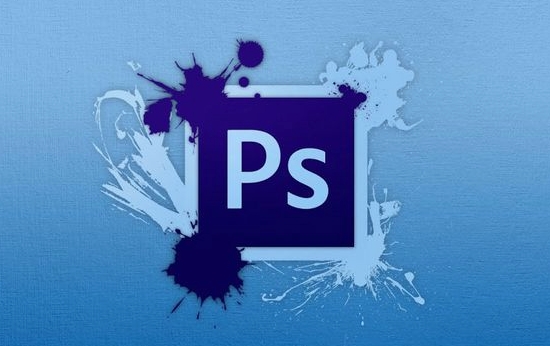Lens distortion can be repaired through Photoshop various methods. 1. Use the "Adaptive Wide Angle" filter to draw the reference line along the straight line of the image to automatically adjust perspective and distortion, which is suitable for architectural photography; 2. Through the "Lens Correction" function, enable the configuration file to automatically correct barrel or pincushion distortion, and manually select the lens model and fine-tune the distortion value; 3. Use "Content Recognition Scaling" and "Deformation Tool" to manually adjust the edges and local areas, which are suitable for high-precision photo editing; 4. Turn on the grid to help improve the accuracy of correction. It is recommended to combine a variety of tools to obtain the best results in actual operation.

Lens distortion is very common in photos, especially when shooting in wide angles, barrel distortion or pincushion distortion is more likely to occur. Fortunately, Photoshop provides several simple and effective ways to fix these problems. Here are a few practical methods.

Use the Adaptive Wide Angle Filter
This is one of the most flexible tools to deal with complex distortions, such as perspective deformation. It can not only correct the distortion of the lens itself, but also correct the perspective problem caused by the shooting angle.

Operation steps:
- After opening the image, click "Filters" > "Adaptive Wide Angle" in the menu bar
- In the pop-up window, you can use the Line tool to draw along a part of the image that should be a straight line (such as the edge of a building)
- Photoshop will automatically adjust perspective and distortion based on these reference lines
- After the adjustment is completed, click OK to apply the effect
This method is especially suitable for architectural photography or photos that require precise perspective control.

Take advantage of the “l(fā)ook correction” function
This is the most direct way to repair distortions, suitable for most common barrel or pincushion distortions.
Operation steps:
- Go to "Filters" > "Lens Correction"
- Under the "Auto Correction" tab, check "Enable Lens Profile Correction"
- Photoshop will try to automatically load the corresponding configuration file according to the camera model you are using and the lens.
- If there is no automatic identification, you can manually select the brand, camera model and lens model
- Fine-tune the "Twisting" value in the slider below until the screen looks natural
If you often use a certain lens to shoot, it is recommended to save the current setting as a preset, and you can call it directly next time.
Content-aware zooming and manual adjustment
Sometimes automatic tools cannot fully meet the needs, especially when there are important elements at the edge of the picture, which may require manual fine-tuning.
Operation steps:
- Using the cropping tool, check "Content Recognition" in the options bar
- Drag the edges to shrink inward a little, so that the PS will automatically fill the edge gaps
- Fine-tune the local area with the "Deformation Tool" (right-click to select deformation after Ctrl T)
- Be careful not to overstretch, otherwise the picture will be distorted
This method is more suitable for advanced users and is more common in commercial photo editing with high requirements for details.
Tips: Turn on grid-assisted correction
No matter which method you use, you can open "Show" > "Grid" in the "View" menu, which can more intuitively determine whether the lines are already horizontal or vertical, helping you to correct distortion more accurately.
Basically these commonly used methods. Each tool has applicable scenarios, and multiple functions can be combined to achieve the best results when used.
The above is the detailed content of How to fix lens distortion in Photoshop. For more information, please follow other related articles on the PHP Chinese website!

Hot AI Tools

Undress AI Tool
Undress images for free

Undresser.AI Undress
AI-powered app for creating realistic nude photos

AI Clothes Remover
Online AI tool for removing clothes from photos.

Clothoff.io
AI clothes remover

Video Face Swap
Swap faces in any video effortlessly with our completely free AI face swap tool!

Hot Article

Hot Tools

Notepad++7.3.1
Easy-to-use and free code editor

SublimeText3 Chinese version
Chinese version, very easy to use

Zend Studio 13.0.1
Powerful PHP integrated development environment

Dreamweaver CS6
Visual web development tools

SublimeText3 Mac version
God-level code editing software (SublimeText3)
 What are some common keyboard shortcuts that can significantly speed up a Photoshop workflow?
Jul 07, 2025 am 12:17 AM
What are some common keyboard shortcuts that can significantly speed up a Photoshop workflow?
Jul 07, 2025 am 12:17 AM
Mastering Photoshop shortcut keys can significantly improve work efficiency. 1. Zoom and Navigation: Z key activates the zoom tool, Space bar Drag the quick pan canvas, double-click Z key to adapt the image to the window size, Ctrl/Cmd/-adjust the zoom level; 2. Layer management: Ctrl Shift N creates a new layer, Ctrl G group, Ctrl E merges layers, Shift [or] moves the layer level, Ctrl Click on the layer thumbnail to quickly select content; 3. Select and brush adjustment: M and L to switch rectangular marquee and lasso tools respectively, Shift adds/Alt to subtract selections, [or] adjusts the brush size, Shift [or] adjusts the hardness, so as to achieve efficient editing and smooth operation.
 How to restore an old photograph in Photoshop
Jul 12, 2025 am 12:40 AM
How to restore an old photograph in Photoshop
Jul 12, 2025 am 12:40 AM
Repairing old photos can be achieved through key steps in Photoshop. The first is scanning and preliminary adjustment, including high-resolution scanning, cropping images, rotation correction and brightness/contrast adjustment; the second is to remove scratches and stains, use the imitation stamp tool to deal with large-area damage, repair tools to deal with small scratches, and pay attention to low transparency overlay and layering operations; the third is optional coloring and color tuning, and use the "hue/saturation" adjustment layer to increase retro tone; the last is to polish and output, check details, adjust sharpness, confirm resolution and select a suitable format to save. The entire process requires patience and meticulousness, especially when dealing with key parts such as the facial features of the characters.
 How to create a custom gradient in Photoshop
Jul 07, 2025 am 12:24 AM
How to create a custom gradient in Photoshop
Jul 07, 2025 am 12:24 AM
The key to creating a custom gradient in Photoshop is to master the use of the gradient editor. 1. First select the gradient tool (shortcut key G), click the top preview bar to open the "Gradge Editor"; 2. Click "New" in the editor to start customization, and you can also modify the style in the built-in gradient library; 3. Set color transition by adding, deleting and dragging the color slider, and double-clicking the slider to select specific colors; 4. Adjust the opacity stop point to control the transparency changes, click the diamond icon to add the transparency node; 5. Select linear, radial and other types in the gradient tool options to match design needs, and you can get started quickly after you are proficient.
 What are the key differences between Layer Masks and Vector Masks, and when should each be used?
Jul 16, 2025 am 12:03 AM
What are the key differences between Layer Masks and Vector Masks, and when should each be used?
Jul 16, 2025 am 12:03 AM
LayerMasks and VectorMasks are used in Photoshop with similar uses but different principles. LayerMasks is based on pixels and uses grayscale values to control the display and hiding of layer areas. It is suitable for photo detail editing, soft transition effects and fine brush adjustments, but zooming in may lead to jagging; VectorMasks is based on vector paths and shapes, and has resolution irrelevant resolution. It is suitable for graphics that require clear edges such as logos, icons or text frames, and can be scaled losslessly; the selection is based on the content type (photo or graphics), whether the size needs to be greatly adjusted, and the required edge effects (soft or sharp), and sometimes combined use can give full play to their respective advantages.
 How can vector shapes be created and manipulated in Photoshop?
Jul 14, 2025 am 12:01 AM
How can vector shapes be created and manipulated in Photoshop?
Jul 14, 2025 am 12:01 AM
TocreateandmanipulatevectorshapesinPhotoshop,usetheShapeToolstodrawvectorpathsonshapelayers,editanchorpointswiththeDirectSelectionTool,combineorsubtractshapesusingpathoperations,andrasterizewhennecessary.First,selectthedesiredshapetool—Rectangle,Elli
 What are artboards in Photoshop
Jul 14, 2025 am 12:04 AM
What are artboards in Photoshop
Jul 14, 2025 am 12:04 AM
AnartboardinPhotoshopisamovable,resizablecontainerthatactsasanindividualcanvaswithinasingledocument.Itallowsdesignerstocreatemultiplelayoutsordesignvariationssidebyside,eachwithitsownsizeandcontent.Artboardsareidealforweblayouts,appscreens,banners,an
 How to select a specific color range in Photoshop
Jul 12, 2025 am 12:37 AM
How to select a specific color range in Photoshop
Jul 12, 2025 am 12:37 AM
ToselectaspecificcolorrangeinPhotoshop,usetheColorRangetool.1.GotoSelect>ColorRangeandclicktheeyedropperonthedesiredcolor.2.AdjusttheFuzzinessslidertocontrolselectionbreadth.3.AddmoresampleswithShift-clicks.4.EnableLocalizedColorClustersforcomplex
 What is the purpose of guides, grids, and rulers in achieving precise layouts?
Jul 15, 2025 am 12:38 AM
What is the purpose of guides, grids, and rulers in achieving precise layouts?
Jul 15, 2025 am 12:38 AM
Rulers provide positioning references, Guides implement element alignment, and Grids builds a systematic layout. 1. Rulers display position coordinates, and can drag out reference lines to check element deviations and judge distance specifications; 2. Guides are virtual lines dragged out from rulers, accurately align elements and divide areas, and support locking and color settings; 3. Grids consists of rows and columns to control the overall layout rhythm, and adapt to responsive design, which are common, such as 12-column web page grids and 8px mobile grids. The combination of the three improves layout efficiency and professionalism.






